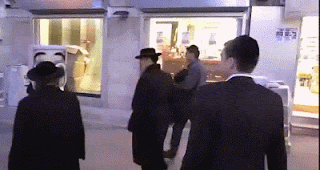Israel's new government is redefining 'religion and state'
Opinion: The capitulation of the former Netanyahu administration to the demands of Haredi politicians presented the country with economic and societal threats that the new coalition must take steps to reduce if it hopes to retain its legitimacy to lead
Perhaps the most prominent change between Israel's previous government and the new one is in its approach to matters of religion.
It is not a tactical shift in policy or the result of political or personal whims. The new government is changing strategy, dictated by the reality of life in Israel.
The previous government's extensive capitulation to the demands of the ultra-Orthodox parties presented Israel with two existential threats: one economic and the other societal.
The economic threat stems from the insistence of Haredi political leaders to perpetuate the state-financed yeshiva study adopted by Israel in the years after the Holocaust, when European Hassidic Judaism seemed in danger of disappearing altogether.
But a community that directs its men to life-long study while its women are tasked with child rearing and providing an income for the household is doomed to live in poverty.
The victims are first and foremost the members of the Haredi communities themselves, of course.
But the economic impact has spread to the entire population, which is required to subsidize an unproductive sector of Israeli society - an increasingly difficult and expensive task.
The societal threat comes from the clash between the conservative ultra-Orthodox worldview and secular Israel.
Haredi communities are hermetically sealed off from other sectors of society, even when they live in the same cities.
When a member of such a community ventures out into the world, they arrive with demands for their religious needs to be accommodated, most prominently separation of the sexes.
Haredi men do not see images of women in the public sphere and women are even absent from advertisements on city buses and billboards in their communities.
This fact alone prevents ultra-Orthodox and secular Israelis from sharing the same public spaces even as their political leaders often work together to further mutual interests.
But now Prime Minister Naftali Bennett's government has announced a series of reforms that would lead to the privatization of Israel’s kosher certification process in order to increase competition in a field currently monopolized by the ultra-Orthodox Chief Rabbinate.
The announcement was met with fury from the Rabbinate, which has control over all aspects of Jewish life in Israel.
But the Rabbinate cannot have sole authority unless it moves to represent a majority of Israeli society and the ultra-Orthodox alone do not determine who receives kosher certification and who is deemed as a successful convert to Judaism.
Now that some ultra-Orthodox politicians are coming to terms with the fact that their benefactor, former prime minister Benjamin Netanyahu, is about to return to power, some are considering how best to promote dialogue with the new administration.
They also understand that if such a dialogue is allowed to proceed, at least some of the announced new policies could be reversed.
But if the government decides to suspend its strategic shift, it may also lose its legitimacy.






